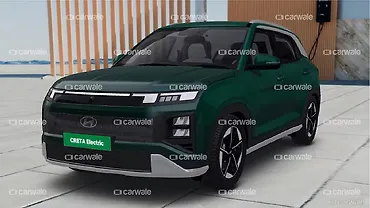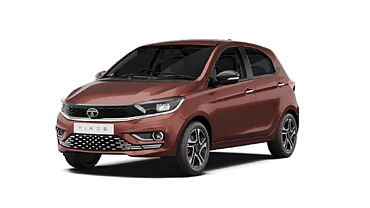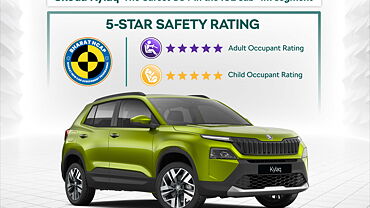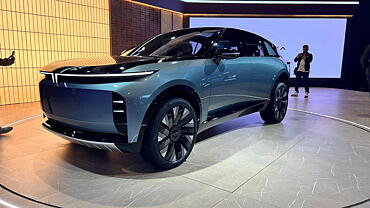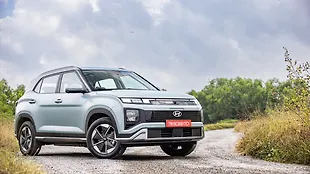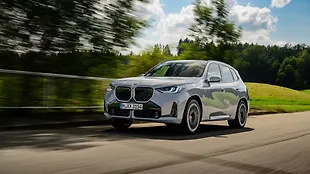
 The i10 has always been a popular car, and now it has got better with the introduction of a new engine, the 1.2 litre Kappa motor whose base model’s price is Rs 3.99 lakh, ex-showroom, Delhi. We got our hands on the car, including the automatic, for a driving impression.
The i10 has always been a popular car, and now it has got better with the introduction of a new engine, the 1.2 litre Kappa motor whose base model’s price is Rs 3.99 lakh, ex-showroom, Delhi. We got our hands on the car, including the automatic, for a driving impression.
The facts first: the new engine is an all-aluminium, DOHC, 16-valve unit that produces 80bhp@5200rpm, 11.4kgm@4000rpm, and is redlined at 6500rpm. It has a lubricated timing chain, offset crank, and spark plugs that have been lengthened from 19mm to 26.5mm. The valves incorporate hydraulic lash adjustors. Other innovations include the lack of a fuel return line that helps save fuel by eliminating evaporation, and fuel injectors whose pulsing can be varied, depending on the requirements of the moment – warming up, power, or normal driving. The i10 automatic will also be available with a four-speed  transmission.
transmission.
HMIL let us sample the cars on the East Coast Road from Chennai to Pondicherry. The Kappa motor is remarkably eager to rev, and those who’d like a little fun every now and then with their i10 will appreciate this the most. There is enough overtaking power now even for the highway, with second and third gears showing 80kph and 140kph on the speedo. The aluminium construction has made the engine lighter by 3kg – so the good ride and handling of the old model remain. The automatic is probably the best small car for city traffic at the moment – it is very responsive at city speeds, and will allow you to dart into the little spaces at traffic jams without you having to exercise your left leg at all.
What was pleasantly surprising was the absence of badges on the engine cover – we are so used to manufacturers shouting “DOHC!†from the rooftops, that the small ‘Kappa’ badge just ahead of the right door and the ‘1.2’ badge on the hatch make the new i10 an almost-sleeper. Looks like Hyundai are taking ‘subtle’ in a very serious way; look at the 2008 Sonata Embera, for instance. The i10's performance has got better, as has the power rating, but fuel consumption is expected to be 4-5% lower than the Epsilon. The Kappa is ready to meet Euro V regulations. In its current form, it meets Euro lV norms and emits 119g of CO2 per km. HMIL have spent US$230 million on a new engine plant to manufacture the
used to manufacturers shouting “DOHC!†from the rooftops, that the small ‘Kappa’ badge just ahead of the right door and the ‘1.2’ badge on the hatch make the new i10 an almost-sleeper. Looks like Hyundai are taking ‘subtle’ in a very serious way; look at the 2008 Sonata Embera, for instance. The i10's performance has got better, as has the power rating, but fuel consumption is expected to be 4-5% lower than the Epsilon. The Kappa is ready to meet Euro V regulations. In its current form, it meets Euro lV norms and emits 119g of CO2 per km. HMIL have spent US$230 million on a new engine plant to manufacture the  Kappa motor, as it will be used in export models as well.
Kappa motor, as it will be used in export models as well.
The Kappa motor will not make it into the Getz, which will make way for the i20 hatchback by the end of this year. There are no plans at the moment to introduce the diesel i10 right away, but if research indicates that it will be well received and if HMIL manages a high amount of local content, then it will be launched in India as well.
The i10 Kappa lineup will start at Rs 3.99 lakh (ex-showroom Delhi) for the Magna manual, which will not have the 1.1 as an engine option any more. The 1.1l engine will still do duty under the hoods of the Era and D-Lite, but the new variants, the Magna, the Sportz and the Asta will have the Kappa motor. The Asta with sunroof is the top-end variant, at Rs 5.43 lakh, ex-showroom Delhi.
which will not have the 1.1 as an engine option any more. The 1.1l engine will still do duty under the hoods of the Era and D-Lite, but the new variants, the Magna, the Sportz and the Asta will have the Kappa motor. The Asta with sunroof is the top-end variant, at Rs 5.43 lakh, ex-showroom Delhi.
More on Hyundai i10:

